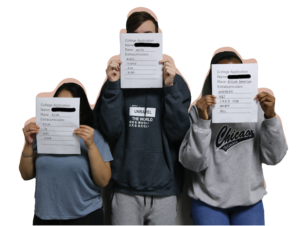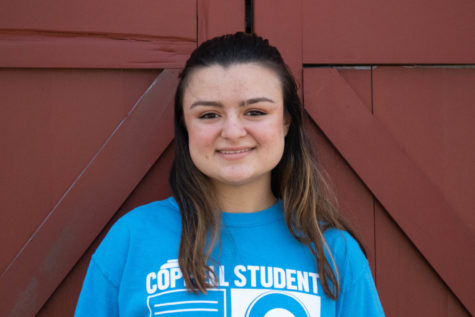Quantity or quality? The effects of padding college applications
At CHS and many other schools around the nation, students force themselves to participate in activities they have no passion for. This results in negative effects on the student, as well as lack of significant impact on college admissions.
March 3, 2018
At Coppell High School, more than 60 different clubs are available for students – everything from Science Olympiad to Bollywood Dance.
Amidst all the choices, CHS associate principal Melissa Arnold thinks students may feel pressured to take part in an excessive number of activities, including those they feel no passion for. Common terms for this include college application “padding” or “stuffing.”
“I definitely have had conversations with kids who are involved in things only so their college applications look more well-rounded,” Arnold said.
Students should understand the effects of doing so, as well as how padding activities will affect colleges’ admission decisions.
Benefits of focusing on passion
Time is a limited asset. Students spend a third of their day at school in addition to several hours at home spent completing homework or studying for assessments; extracurricular activities often eat up massive chunks of time on top of this, so students are advised to be smart when considering which ones to invest their hours.
“Students should focus on their passions and what they’re interested in,” Arnold said. “Quality over quantity is always a better thing for the kid to become a well rounded individual.”
Often, enrolling in activities they have no interest for causes students to dread attending meetings or practices. As a result, they may have low attendance rates.
“If you only go to a club once in a while, or not nearly as often as you’re expected to, but still put it down as something you participated in on your college applications, you’re not being honest,” Arnold said.
If students have a choice of spreading their hours thin across a multitude of activities or immersing themselves completely in a couple, college admissions would like to see the latter.
“There’s more benefit to most students to have a few things they’re really involved in, and that they have a lot of time and interest spent in those few things, as opposed to having dipped their toes in a million different activities,” University of Texas at Dallas admissions counselor William Henning said.
Focusing on one’s passions is not only beneficial for college applications, but also for personal fulfillment. Arnold thinks when students have the time to dedicate themselves wholly to their true passions, their lives will be enriched by how far they travel in those areas, and what they accomplish.
“The consequences [of padding your applications] can be internal, because [you’re doing activities] you don’t enjoy,” Arnold said. “You’ll get farther doing something you do enjoy.”
Although many students are inclined to participate in activities solely to impress colleges, there are certainly those who love what they do, and understand the consequences of focusing too much on padding their applications.
“If someone has to do something they don’t want to do just for college, you can tell right away, [and] it brings their work ethic down,” CHS sophomore Sangho Han said. “I consider it more of a perk that I can put activities I like doing anyway on my college applications.”
Lack of impact on college decisions
Many students overload their schedule with extracurriculars because they believe doing so will cause their chances of acceptance at competitive colleges to skyrocket. However, often times, this is not the case.
“What colleges tell us is that they can tell when a student has crammed in activities for the sake of trying to look good for a college they figure that out pretty quickly,” CHS lead counselor Debra Fruithandler said.
Fruithandler thinks students should know that merely listing activities on their application will never translate to a higher chance of acceptance if the activity they listed has no true significance to them.
“Colleges try to determine by your writing samples, your essay questions how you think and what kind of person you are,” Fruithandler said. “You can say you’ve volunteered at this hospital, or a place for the needy, or you feed the homeless. That’s easy to say, but what’s hard to say, is what you got out of that experience. What you learned about that experience.”
Students may be overestimating the weight extracurriculars have in the admission decision. Students’ time could be better spent improving their grades and test scores.
“For our admissions process, extracurriculars are important, but still a heavy majority of the decision is going to come from academics,” Henning said. “Because, although extracurriculars do show some signs of characteristics that we’re looking for in students, most of the information we need of how a student will perform in the classroom is available through their test scores and their transcripts.”
Student opinion on prioritizing academics
Although some students focus more on activities, others agree academics are more important. Han immerses himself in several extracurriculars including band, volunteering and babysitting, but he feels school should be prioritized.
“I usually put academics first,” Han said. “If I’m behind in school, I would probably skip an extracurricular activity.”
As the day one must apply to college nears, students may experience feelings of anxiety, or fear they are not good enough. Therefore, students are often found cramming in new activities specifically late in their junior year or early their senior year.
“A lot of times students seem to panic last minute [before college application deadlines], so they try to stuff in new activities [to their college application] around senior year,” Hemming said.
However, they should be aware that doing so is not always worth the extra effort and stress.
“Your senior year, a lot of the extracurriculars you’re involved in are hard to report because you’re in the process of doing them, or you’re just joining them,” Henning said. “So what you’ve done freshman to junior year has more weight.”
Follow Pramika @pramika_kadari on Twitter













